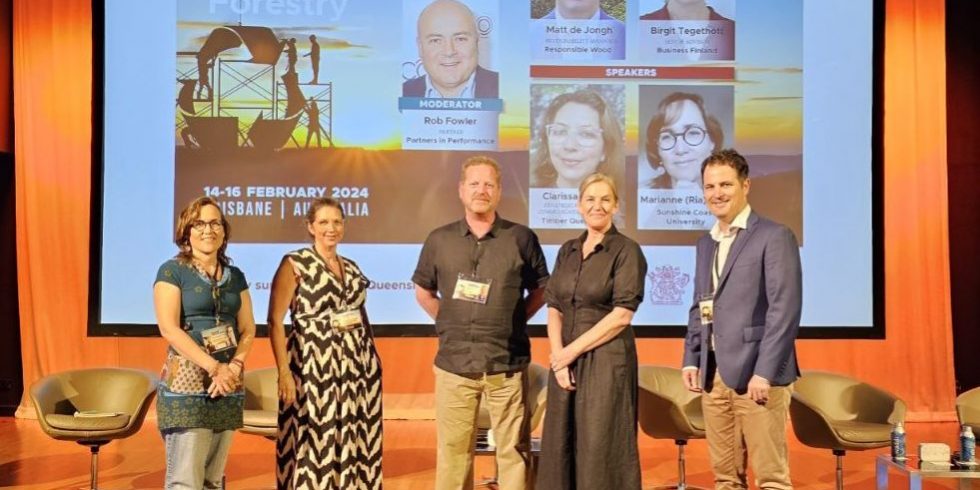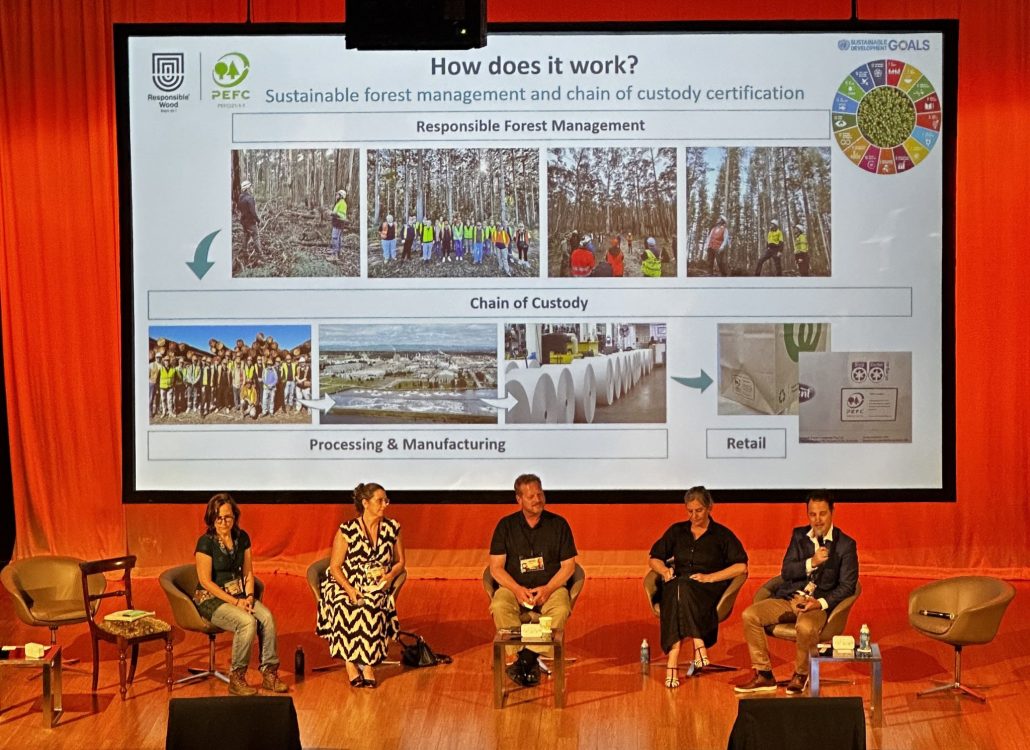Brisbane Hosts SIM-PAC 2024
Always at the forefront of advocating for sustainable forestry, Responsible Wood Sustainability Manager Matt de Jongh took the stage at the Sustainable Industrial Manufacturing Asia Pacific (SIM-PAC) Conference 2024 in Brisbane recently, underscoring the pivotal role of the Responsible Wood Certification Scheme. His insights into sustainable forest management certification at the conference highlighted innovative solutions that are shaping the future of sustainable manufacturing. As the event gathered thought leaders, innovators, and industry practitioners, it presented a unique platform to explore the latest trends, technologies, and strategies propelling sustainable manufacturing and construction forward.
Innovations in Timber: A Path to Sustainable Construction
A focal point of the SIM-PAC Conference was the emphasis on timber as a sustainable and renewable resource. With its ability to sequester carbon, timber is increasingly recognised as an essential material for eco-friendly construction. As global efforts to mitigate carbon footprints intensify, integrating timber into the built environment emerges as a practical approach to fostering more sustainable urban landscapes. The conference delved into advancements in timber processing and construction technologies that enable the creation of taller, more resilient structures with minimal environmental impact.
The Role of Certification
Highlighting the significance of certification systems, such as those promoted by PEFC and Responsible Wood, Matt de Jongh was able to shed light on the crucial role certification plays in ensuring the sustainability of timber products. Certification is vital for confirming that timber is sourced from responsibly managed forests, supporting biodiversity, eliminating deforestation, and promoting fair labour practices. By specifying and sourcing certified timber, the construction industry can make a substantial contribution to global sustainability.
Collaboration for a Sustainable Future
The need for cross-sector collaboration was a key theme at the SIM-PAC Conference, emphasising the importance of harnessing the full potential of sustainable and renewable resources like timber. Facilitating dialogues among architects, engineers, policymakers, and the public about sustainable construction practices is vital for catalysing change. The conference demonstrated how integrating renewable resources into the built environment not only addresses environmental issues but also yields economic and social advantages, charting a course toward a more sustainable future.
Moving Forward
The insights from the SIM-PAC Conference 2024 serve as a guiding light for the construction and manufacturing industries, emphasising the critical roles of innovation, certification, and collaboration in harnessing timber and other renewable resources for sustainable development. Embracing these key principles ensures that the built environment not only mitigates harm to our precious natural environments but also contributes positively to global health and well-being, heralding a new age of sustainable construction.
The SIM-PAC Conference has laid the groundwork for industry-wide transformative changes. It represents a collective call to action for all stakeholders to unite in advancing sustainable practices that will define the future of construction and manufacturing, fostering responsible supply chains, and supplying sustainable products for generations to come.








